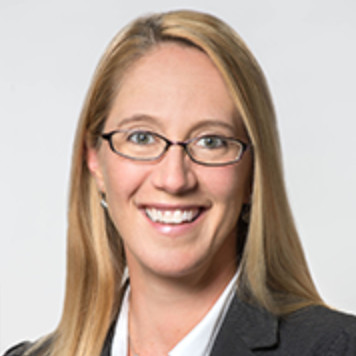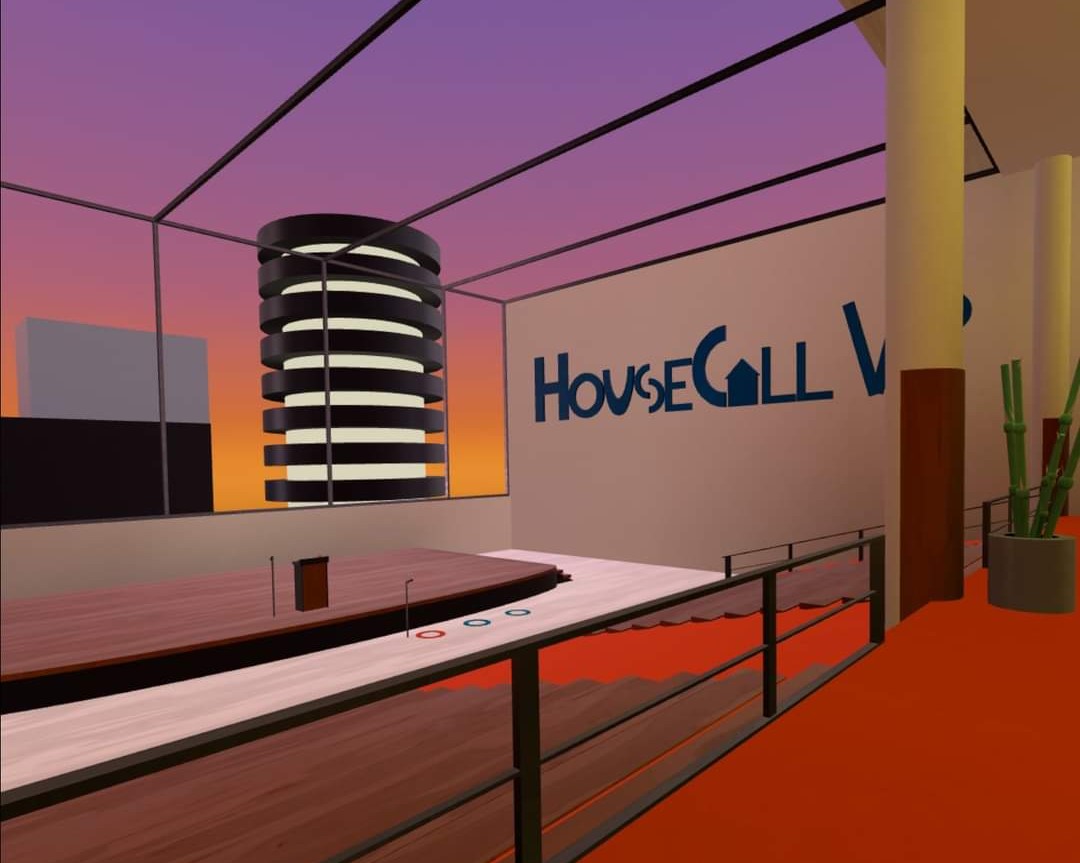When Dr. Linda Ciavarelli tried out her 13-year-old son’s new Quest headset for the first time, she saw the future.
Specifically, the podiatry specialist in Wilmington, Delaware saw a new way to make health information accessible — an idea that is now a functioning Horizon Worlds space called HouseCall VR.
The healthcare industry has been using virtual reality technology for years in different capacities, even before it was somewhat common for people to have a VR headset at home. ChristianaCare, a major healthcare system in Delaware, started using VR for distraction therapy with cancer patients, many of whom reported a less stressful experience with chemotherapy when it was administered because they felt transported to a calming place.
VR is also used in healthcare training, including immersive simulations for non-healthcare workers learning how to properly administer Narcan to someone overdosing on opioids, and as a stress reducer for healthcare workers dealing with high COVID-19 caseloads and other traumas.
VR for health education
HouseCall VR isn’t a therapy or training module. Horizon Worlds is part of what is sometimes referred to as the metaverse, a virtual public meeting space known for Foo Fighters concerts, virtual space walks and interactive gaming. For some Quest users, VR is a workspace, a gym and a movie theater.
Why not use it to educate people about health?

“One of the things I struggle with, always, is helping patients understand things like peripheral neuropathy, a loss of feeling in your feet,” Ciavarelli told Technical.ly. “If I could say to my patient, ‘Go check this out [in Horizon Worlds] to see what this experience is like,’ maybe the patient would come in the next time and say they really get it.”
Creating a space in Horizon Worlds is fairly easy — anyone can create one, just like anyone can create a social media page or group — especially if you have access to digital creatives like Ciavarelli does. The vision is for a space that is informational, like a more immersive WebMD-meets-The Franklin Institute with visual exhibits, live talks, Q&As and games.
So far, the space features areas focused on podiatry, led by Ciavarelli; dermatology, led by Wilmington’s Dr. Michael Saruk; and women’s health, led by New Jersey’s Dr. Betsy Greenleaf. There’s also an auditorium where Greenleaf gave HouseCall VR’s first virtual presentation in May.
But HouseCall VR is also not a telehealth platform — at least, not now. The Quest platform is not secure enough to safely host doctor appointments, though it’s expected that it will happen eventually.
VR for mental health
In the meantime, VR telehealth is growing on closed platforms, such as Cabana, a VR-based mental healthcare application from Annapolis, Maryland-based Even Health. Cabana connects healthcare workers anonymously from multiple health system partners to deliver professionally moderated group support in a virtual reality based environment.
Like other mental health apps, both on the public Quest platform and private platforms, it offers calming and meditation features, but its core concept is to capture the therapeutic nature of freely talking to a stranger about shared experiences of trauma, grief or stress.

“I lost my father in 2016 to a late-stage terminal cancer, and a year later, I sat next to a stranger on a flight who was headed to his father’s funeral for the same reason,” Even Health CEO and founder David Black told Technical.ly. “And it was a moment where I realized I had sought therapy for losing my dad and processed it how I thought I was supposed to, but I really connected with that stranger on a plane because we were going through a shared challenge, and that connection stuck with me. So I was researching mental health and wellbeing for work, and I was frustrated that we have low engagement rates for individuals but yet a high need. And it got me thinking about that conversation and how we could innovate in mental health.”
Healthcare employees covered by the plan can log in to the Cabana platform, which is accessible on mobile and web as well and doesn’t require a headset, and they will have access to several live group discussions in the evenings and on the weekends. Instead of an avatar resembling the user, Cabana users appear as orbs of various colors, each using an alias. The only one who is seen on video is the moderator, who is a nurse or licensed professional.
That anonymity helps break the stigma, per Black.
“We’re now supporting 70,000 healthcare workers across the country” — including Baltimore’s LifeBridge Health — “through their employers as an early alternative for mental health support,” he said.

VR to increase access
Support groups, such as one for peripheral neuropathy in the podiatry area, are also a facet of HouseCall VR, if patients are comfortable meeting on a public platform. HouseCall has plans to add a mental health topic, as well.
“For me, health access is one of the most important things,” Ciavarelli said. “It’s one of the most frustrating things that I see. My patients have to have to have insurance. They have to have transportation. There are just a lot of barriers to care right now. So with this technology, we really think that we can expand health access. Horizon Worlds is actually going to be a mobile application later this year, so all of the content that we’re creating is going to be accessible to everyone.”
To access HouseCall VR, enter the Horizon Worlds app and type HouseCall into the search bar, then click on HouseCall VR Hub. The auditorium where events are held is at the end of the hub’s walkway.
Tour a virtual world
The next live event a the HouseCall VR Auditorium will be on Friday, June 17 at 7:30 p.m., featuring foot and ankle surgeon Dr. Korey DuBois discussing common ankle injuries seen in athletes. The event will also be livestreamed on HouseCall VR’s Facebook page.
For a peek at what you can do in HouseCall VR, check out these one-minute clips from this reporter’s tour of the space with Ciavarelli and her virtual cameraperson/digital partner Melissa Genao, or watch the full one-hour video on YouTube.
Starting in the lobby:
The gateway to podiatry world:
Entering the world of Brandywine Podiatry, where Ciavarelli works:
Interactive toenail fungus exhibit:
Podiatry world exhibit:
Dermatology world:
“Dune”-inspired, sun damage-themed game in the dermatology world:
Ciavarelli talks about possible features to come:
The auditorium:
Woman’s health world:
You can watch the full video here:







